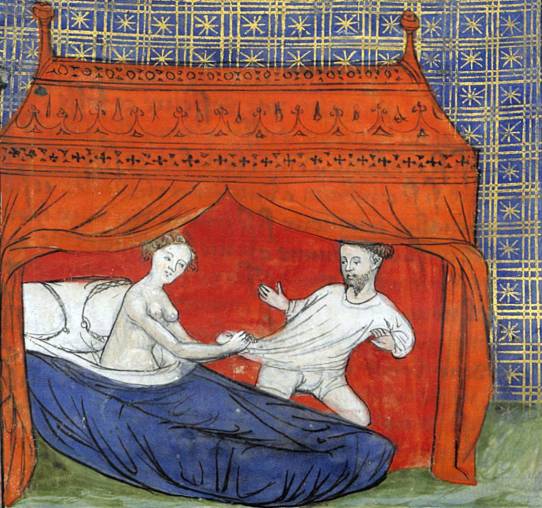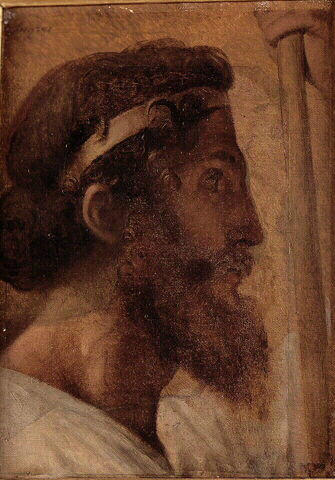Thucydides, 4.74
“Later, when the allies were released to their cities [Brasidas] also returned and went to Corinth where he was preparing an attack on Thrace, the very place where he was heading first. After the Athenians returned home, those in the city from Megara–however many were especially involved with matters pertaining to the Athenians–departed immediately because they knew they had been discovered. The rest conversed with the friends of exiles and returned those from Pegae after they made them swear with great oaths that they would take no action on previous actions [mnêsikakêsein] but would instead consider what was best for the city.
But, when they took up positions in office and made a review of the hoplites, once they separated the units and chose out around one hundred of their enemies and those who seemed to be most implicated in overtures to the Athenians and they forced the people to vote openly about them, they killed them and established an oligarchy in the city. This change, even though it was achieved by the smallest number during the civil strife, lasted the longest amount of time.”
καὶ ὕστερον ὁ μὲν διαλυθέντων τῶν ξυμμάχων κατὰ πόλεις ἐπανελθὼν καὶ αὐτὸς ἐς τὴν Κόρινθοντὴν ἐπὶ Θρᾴκης στρατείαν παρεσκεύαζεν, ἵνα περ καὶ τὸ πρῶτον ὥρμητο: [2] οἱ δὲ ἐν τῇ πόλει Μεγαρῆς, ἀποχωρησάντων καὶ τῶν Ἀθηναίων ἐπ᾽ οἴκου, ὅσοι μὲν τῶν πραγμάτων πρὸς τοὺς Ἀθηναίους μάλιστα μετέσχον, εἰδότες ὅτι ὤφθησαν εὐθὺς ὑπεξῆλθον, οἱ δὲ ἄλλοι κοινολογησάμενοι τοῖς τῶν φευγόντων φίλοις κατάγουσι τοὺς ἐκ Πηγῶν, ὁρκώσαντες πίστεσι μεγάλαις μηδὲν μνησικακήσειν, βουλεύσειν δὲ τῇ πόλει τὰ ἄριστα. [3] οἱ δὲ ἐπειδὴ ἐν ταῖς ἀρχαῖς ἐγένοντο καὶ ἐξέτασιν ὅπλων ἐποιήσαντο, διαστήσαντες τοὺς λόχους ἐξελέξαντο τῶν τε ἐχθρῶν καὶ οἳ ἐδόκουν μάλιστα ξυμπρᾶξαι τὰ πρὸς τοὺς Ἀθηναίους ἄνδρας ὡς ἑκατόν, καὶ τούτων πέρι ἀναγκάσαντες τὸν δῆμον ψῆφον φανερὰν διενεγκεῖν, ὡς κατεγνώσθησαν, ἔκτειναν, καὶ ἐς ὀλιγαρχίαν τὰ μάλιστα κατέστησαν τὴν πόλιν. [4] καὶ πλεῖστον δὴ χρόνον αὕτη ὑπ᾽ ἐλαχίστων γενομένη ἐκ στάσεως μετάστασις ξυνέμεινεν.
Thucydides, 8.73.5
“Some listened to the soldiers individually and appealed for them not to intervene, not the least the Paralii, all Athenians and free men who were sailing in their ship and always prepared to set upon the Oligarchy, even if it did not exist. Both Leôn and Diomedôn left some ships as guards for them whenever they were sailing elsewhere. Thus, when the three hundred were ready to attack, all of these went to help, but especially the Parali, and the majority Samian party prevailed. They killed thirty of the three hundred and then punished the three most responsible with exile. Because they would not hold a grudge [mnêsikakountes] against the rest, they lived together as a democracy for the remaining time.”
οἱ δὲ ἀκούσαντες τῶν τε στρατιωτῶν ἕνα ἕκαστον μετῇσαν μὴ ἐπιτρέπειν, καὶ οὐχ ἥκιστα τοὺς Παράλους, ἄνδρας Ἀθηναίους τε καὶ ἐλευθέρους πάντας ἐν τῇ νηὶ πλέοντας καὶ αἰεὶ δήποτε ὀλιγαρχίᾳ καὶ μὴ παρούσῃ ἐπικειμένους: ὅ τε Λέων καὶ ὁ Διομέδων αὐτοῖς ναῦς τινάς, ὁπότε ποι πλέοιεν, κατέλειπον φύλακας.[6] ὥστε ἐπειδὴ αὐτοῖς ἐπετίθεντο οἱ τριακόσιοι, βοηθησάντων πάντων τούτων, μάλιστα δὲ τῶν Παράλων, περιεγένοντο οἱ τῶν Σαμίων πλέονες, καὶ τριάκοντα μέν τινας ἀπέκτειναν τῶν τριακοσίων, τρεῖς δὲ τοὺς αἰτιωτάτους φυγῇ ἐζημίωσαν: τοῖς δ᾽ ἄλλοις οὐ μνησικακοῦντες δημοκρατούμενοι τὸ λοιπὸν ξυνεπολίτευον.
Compare to Thucydides, 3.82.7-8:
“To exact vengeance from someone was thought to be more important than not suffering at all. If oaths were ever taken in turn, they were strong because each person was at a loss and had no power at all. But as soon as one of them had the advantage, he attacked if he saw anyone unguarded: it was sweeter to take vengeance despite a pledge than to do so openly. It was thought generally to be safe and to have won a prize for intelligence, prevailing by deceit. Many [more] wicked people become famous for being clever than good people do for being ingenuous. We are ashamed by the latter but delight in the former.
To blame for all of these things is the love of power and a love of honor. From both, they fell into a voluntary love of conflict. For those who were in charge of the state each claimed identities for themselves, some the equal rights of the masses, the others the wisdom of the aristocrats; while guarding the common goods in word, they were making them the contest’s prize, competing with one another to be pre-eminent, they dared the most terrible things—and they surpassed them with greater acts of vengeance too. They did not regard either justice or advantage for the city…”
ἀντιτιμωρήσασθαί τέ τινα περὶ πλείονος ἦν ἢ αὐτὸν μὴ προπαθεῖν. καὶ ὅρκοι εἴ που ἄρα γένοιντο ξυναλλαγῆς, ἐν τῷ αὐτίκα πρὸς τὸ ἄπορον ἑκατέρῳ διδόμενοι ἴσχυον οὐκ ἐχόντων ἄλλοθεν δύναμιν· ἐν δὲ τῷ παρατυχόντι ὁ φθάσας θαρσῆσαι, εἰ ἴδοι ἄφαρκτον, ἥδιον διὰ τὴν πίστιν ἐτιμωρεῖτο ἢ ἀπὸ τοῦ προφανοῦς, καὶ τό τε ἀσφαλὲς ἐλογίζετο καὶ ὅτι ἀπάτῃ περιγενόμενος ξυνέσεως ἀγώνισμα προσελάμβανεν. ῥᾷον δ’ οἱ πολλοὶ κακοῦργοι ὄντες δεξιοὶ κέκληνται ἢ ἀμαθεῖς ἀγαθοί, καὶ τῷ μὲν αἰσχύνονται, ἐπὶ δὲ τῷ ἀγάλλονται. πάντων δ’ αὐτῶν αἴτιον ἀρχὴ ἡ διὰ πλεονεξίαν καὶ φιλοτιμίαν· ἐκ δ’ αὐτῶν καὶ ἐς τὸ φιλονικεῖν καθισταμένων τὸ πρόθυμον. οἱ γὰρ ἐν ταῖς πόλεσι προστάντες μετὰ ὀνόματος ἑκάτεροι εὐπρεποῦς, πλήθους τε ἰσονομίας πολιτικῆς καὶ ἀριστοκρατίας σώφρονος προτιμήσει, τὰ μὲν κοινὰ λόγῳ θεραπεύοντες ἆθλα ἐποιοῦντο, παντὶ δὲ τρόπῳ ἀγωνιζόμενοι ἀλλήλων περιγίγνεσθαι ἐτόλμησάν τε τὰ δεινότατα ἐπεξῇσάν τε τὰς τιμωρίας ἔτι μείζους…
Photius
Mnêsikakein: “to make a reminder of evil deeds”
Μνησικακεῖν: τὸ ὑπομιμνήσκεσθαι τῶν κακῶν.
Aeschines 2.176
“Even though we had it going so well, we waged war against the Spartans again because we were persuaded by the Argives. Eventually, thanks to the war-lust of our politicians, we lost and ended up with a garrison in the city along with the four-hundred and the unholy thirty. We did not make peace, but we were forced by commands. But when we were governed sensibly again and the democracy returned from Phyle—and Arkhinos and Thrasuboulos were leading—they established for us the oath of not holding grudges [to mê mnêsikakein], a thing for which all people judged our city most wise.
From this, the democracy was revived and strong from its foundation. But now people who have been enrolled as citizens against the law and are always attracted to any sickness of the city are pursuing war after war as a political platform. Yet, while they see terrible things in peace and incite our covetous and excessively violent minds, nevertheless they never touch weapons during times of war. No, once they become secretaries and cabinet members—these children of prostitutes, rightfully stripped of their rights for their slander—these men pilot the state into the most extreme dangers. They minister to the name of democracy not with their behavior but with their flattery even as they annihilate peace. Democracy is preserved by peace; they struggle to find wars which bring about democracy’s end.”
καὶ τοσαῦτ᾽ ἔχοντες τἀγαθά, πάλιν πόλεμον πρὸς Λακεδαιμονίους ἐξηνέγκαμεν πεισθέντες ὑπ᾽ Ἀργείων, καὶ τελευτῶντες ἐκ τῆς τῶν ῥητόρων ἁψιμαχίας εἰς φρουρὰν τῆς πόλεως καὶ τοὺς τετρακοσίους καὶ τοὺς ἀσεβεῖς τριάκοντα ἐνεπέσομεν, οὐκ εἰρήνην ποιησάμενοι, ἀλλ᾽ ἐκ προσταγμάτων ἠναγκασμένοι. πάλιν δὲ σωφρόνως πολιτευθέντες, καὶ τοῦ δήμου κατελθόντος ἀπὸ Φυλῆς, Ἀρχίνου καὶ Θρασυβούλου προστάντων τοῦ δήμου, καὶ τὸ μὴ μνησικακεῖν πρὸς ἀλλήλους ἔνορκον ἡμῖν καταστησάντων, ὅθεν σοφωτάτην ἅπαντες τὴν πόλιν ἡγήσαντο εἶναι, κἀνταῦθα ἀναφύντος τοῦ δήμου καὶ πάλιν ἐξ ἀρχῆς ἰσχύσαντος, ἄνθρωποι παρέγγραπτοι γεγενημένοι πολῖται, καὶ τὸ νοσοῦν τῆς πόλεως ἀεὶ προσαγόμενοι, καὶ πόλεμον ἐκ πολέμου πολιτευόμενοι, ἐν μὲν εἰρήνῃ τὰ δεινὰ τῷ λόγῳ προορώμενοι, καὶ τὰς ψυχὰς τὰς φιλοτίμους καὶ λίαν ὀξείας ἐρεθίζοντες, ἐν δὲ τοῖς πολέμοις ὅπλων οὐχ ἁπτόμενοι, ἐξετασταὶ δὲ καὶ ἀποστολεῖς γιγνόμενοι, παιδοποιούμενοι δὲ ἐξ ἑταιρῶν, ἄτιμοι δ᾽ ἐκ συκοφαντίας, εἰς τοὺς ἐσχάτους κινδύνους τὴν πόλιν καθιστᾶσι, τὸ μὲν τῆς δημοκρατίας ὄνομα οὐ τοῖς ἤθεσιν, ἀλλὰ τῇ κολακείᾳ θεραπεύοντες, καταλύοντες δὲ τὴν εἰρήνην, ἐξ ἧς ἡ δημοκρατία σῴζεται, συναγωνιζόμενοι δὲ τοῖς πολέμοις, ἐξ ὧν ὁ δῆμος καταλύεται.
Aeschines 3.208
“Indeed, whenever he says these sorts of things against arguments for specific factions, propose this in return: “Demosthenes, if the people who restored the democracy in exile from Phyle were similar to you, the democracy would never have been re-established. But now they saved the city from great calamities and uttered that finest speech of a cultured mind: “Don’t hold a grudge” [mnêsikakein]” But you rip open wounds: today’s speech matters more to you than the safety of the state.”
But when an oathbreaker takes flight in the faith you put in oaths, mention this to him, that when someone frequently breaks an oath but is always thinking it necessary to procure trust with oaths, one of two options remain to him. Either, he swears by new gods or he finds audiences that are different.”
ὅταν δὴ τὰ τοιαῦτα λέγῃ, πρὸς μὲν τοὺς στασιαστικοὺς λόγους ἐκεῖνο αὐτῷ ὑποβάλλετε: ‘ὦ Δημόσθενες, εἰ ὅμοιοι ἦσαν σοὶ οἱ ἀπὸ Φυλῆς φεύγοντα τὸν δῆμον καταγαγόντες, οὐκ ἄν ποθ᾽ ἡ δημοκρατία κατέστη. νῦν δὲ ἐκεῖνοι μὲν μεγάλων κακῶν συμβάντων ἔσωσαν τὴν πόλιν τὸ κάλλιστον ἐκ παιδείας ῥῆμα φθεγξάμενοι, ‘μὴ μνησικακεῖν’: σὺ δὲ ἑλκοποιεῖς, καὶ μᾶλλόν σοι μέλει τῶν αὐθημερὸν λόγων, ἢ τῆς σωτηρίας τῆς πόλεως.’
ὅταν δ᾽ ἐπίορκος ὢν εἰς τὴν τῶν ὅρκων πίστιν καταφυγγάνῃ, ἐκεῖνο ἀπομνημονεύσατε αὐτῷ, ὅτι τῷ πολλάκις μὲν ἐπιορκοῦντι, ἀεὶ δὲ μεθ᾽ ὅρκων ἀξιοῦντι πιστεύεσθαι, δυοῖν θάτερον ὑπάρξαι δεῖ, ἢ τοὺς θεοὺς καινούς, ἢ τοὺς ἀκροατὰς μὴ τοὺς αὐτούς.

Like this:
Like Loading...






